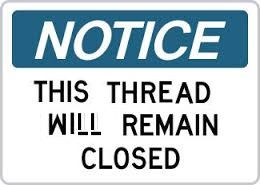Ah yes, another argument which is very destructive to the (incorrect) view that Christians tend to see for morality.
You see, morality is not "this is bad, this is good," so much as it is about time and place. The book of Ephesians in the Bible actually talks about this.
And I agree wholeheartedly -- morality is not objective or absolute, but always situational. Context matters.
I have stated previously, but to reiterate, I believe morality is based upon balance; good is what brings us closer to perfect balance and a state of perfection, evil is that which causes discord.
The problem as I see it is that "perfection" requires permanence -- if it's only temporary, it's not perfect. As morality is always situational and thus always changing, permanence, and thus perfection, are unattainable.
That's not to say that it's not a goal we should strive towards, even if we never reach it. And that's where discord comes into play -- chaos is a necessary agent of change; change is a necessary agent of growth.
The American Revolution,
The Civil War,
The Great Depression and New Deal,
The Civil Rights protests,
The Stonewall riots,
etc...
All of these were chaotic moments which caused great discord,
but they led to change, which led to growth... I believe it was Aquinas who said that God allows evil to happen
because He knows that a greater good will come from it somewhere down the line... and if that is so, can it truly be called "evil"?
So basically, the idea of morality is simply that good is, all things considered, the best choice for the benefit of all, yourself included. However, one would need to know literally everything to make the perfect decision at all times, as even the smallest actions can have major consequences, even if we do not notice them immediately.
Again, agreed 100% -- so we make the most moral decisions we can based on the information we have available to us.
I'm not going to go into all that right now; it's simple enough but can take a while to explain. I'm more than willing to make another post or directly message you about the matter, if you're interested.
While I cannot speak for other deities, God may seem flighty on the outside, but only because we do not understand all things. The idea is that God is doing what is the best possible option, given what He has to work with, for the given situation.
Perhaps -- but God has condoned, commanded, and committed wholesale slaughter (among other atrocities). Admittedly, my limited human intellect is having a difficult time fathoming a context where such actions might be considered "moral" -- and I'm afraid "He's God; just do as He says" isn't going to cut it.
I'm going to need some details before I accept
Him as a source of ultimate morality.
The catch is, He has rules He abides by, and allowing free will is one of those. Ergo, certain things happen that He does not prevent, due to His respect for His own rules.
Omnipotence means that his abiding by such rules is a choice, not an obligation -- and He has
not always abided by His own rules... ask Pharaoh.
Also, as this inevitably brings up the question "why would a good God let bad things happen?", I will explain as best as my humble mind knows about such a deep and unexplainable question:
No need; Thomas Aquinas (see above) has covered that to my satisfaction... but I do appreciate the effort.
I speak as someone who knows how painful and hopeless one feels in the moment of pain. I too have questioned God... many, many times. And He has answered. Hence why I am a Christian; I certainly would not be if there was no legitimacy, as following social norms is quite against my personality.

It sounds like you questioned God in your moments of pain and hopelessness. I question God because I find some of His actions highly questionable.
Suffice it to say, God will act differently at different times, but not because He has changed, but because we have, and the circumstance may require one thing or another. I do not claim to know why He lets some things happen; I struggle with that question a lot. But if you are going to believe in a God, you have to trust Him, other wise the whole belief is pointless.
Then I choose
not to believe in an omnibenevolent theistic deity who acts (or doesn't act) in accordance with a preordained plan or the universe and everything in it.
I am, however, on the fence about a non-theistic higher force permeating the universe, as well as a spiritual aspect subject to this same higher force: the inescapable rule of cause-and-effect. For every action, there are consequences.
Hence, my stated belief as "agnostic," not "atheist."
And even if God were not to exist, the mentality of turning your suffering into opportunity is one that I think all people can agree is extremely healthy and beneficial.
Agreed -- which is why I prefer to see challenges and opportunities, not problems and suffering.


